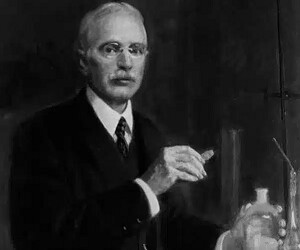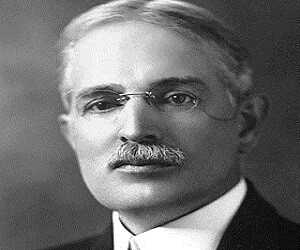

Last Updated: 07 May, 2024 | Views: 716
Age: 60
Profession: Scientist
Famous For: Receive Nobel Prize in Chemistry
Higher Education: Harvard University
About (Profile/Biography):
Theodore William Richards was an American chemist who made important advances in the areas of analytical, physical, and inorganic chemistry. William was born on January 31st, 1868 in Germantown, Pennsylvania, and graduated from Haverford College with a Bachelor of Arts in 1886. Later, in 1891, he obtained his PhD in chemistry from the University of Göttingen.
Theodore William Richards Career:
From 1892 through 1911, Richards worked as a professor at the University of Chicago, where his chemistry career got its start.
He then joined the Harvard University faculty, where he worked as a chemistry professor from 1911 to 1947 and the department head from 1911 to 1947.
Theodore William Richards Invention:
Richards is well recognised for his groundbreaking work in atomic weight estimation and the creation of methods for precise chemical analysis. He created the idea of "equivalent weight," which is still employed in contemporary chemistry, and was the first to synthesis pure neptunium, a rare earth element. He also identified the isotope fractionation phenomena, which refers to the preferential enrichment of particular isotopes in a sample.
Theodore William Richards Achievements:
Richards received various honours and medals for his ground-breaking work, including the Willard Gibbs Medal in 1929, the Faraday Medal in 1915, and the Nobel Prize in Chemistry in 1914.
He is considered as one of the most significant 20th-century chemists, and his contributions are still widely utilised and respected today.
Theodore William Richards Death:
On April 2, 1928, Theodore William Richards passed away in Cambridge, Massachusetts. He passed away when he was 60 years old.


